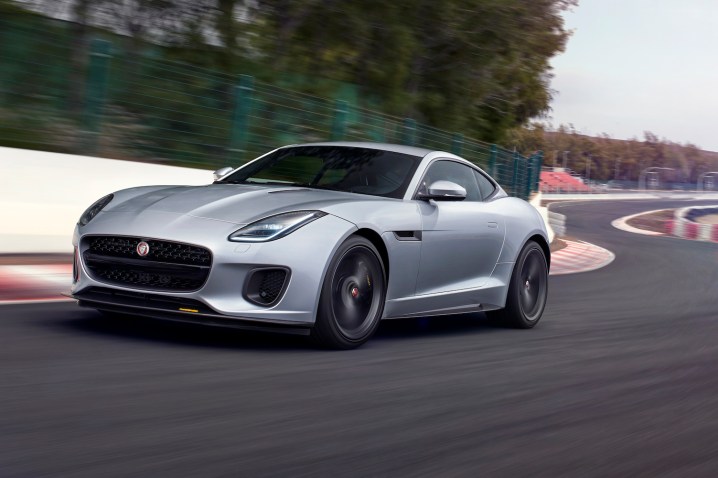
The F-Type, Jaguar’s only true sports car, is waiting in line to get a major makeover. The British company has already assigned a team of engineers and designers to secretly work on the next-generation model due out around the turn of the decade. The project is still at the embryonic stage of development, and product planners haven’t yet locked in key details like what the model will be powered by.
Jaguar is leaving two options on the table, according to British magazine Autocar, and they’re completely different from one another. On one hand, the F-Type could morph into a battery-electric sports car aimed squarely at the upcoming second-generation Tesla Roadster. On the other hand, the F-Type could remain gasoline-powered and receive a Jaguar-specific evolution of the twin-turbocharged, 4.4-liter V8 that powers many BMW models, including the M5 and the recently-introduced X7.
Each solution has its own distinct set of pros and cons. Going electric means designers wouldn’t have to package the car around a big V8. They would have considerably more freedom to take the next-generation F-Type in a bolder direction, like they did with the I-Pace, which looks like nothing else on the road. An electric car remains heavier than a comparable gasoline-powered model, however, and even using aluminum couldn’t skew the balance in an electric F-Type’s favor. The V8-powered model would be much cheaper to develop, and it would appeal to a wider audience, but it wouldn’t be as cutting-edge.
Though Jaguar would ideally offer both and let customers choose their team, it needs to pick one option and run with it. The final decision may come down to what the firm decides to do with the rest of its range. An earlier report claims it could transform itself into an electric-only brand in a bid to turn around its slipping sales. If that’s the case, it’s safe to bet that the F-Type will go electric.
Jaguar has time to figure out what to do with the next F-Type and, more broadly speaking, its future. Autocar learned the current F-Type — which recently learned to fly during a rally event — will remain part of the firm’s portfolio for at least two more years, meaning we likely won’t see its replacement until 2021 at the earliest. One thing is for sure: It will live on and return for a second generation.
“Despite sports cars not being a great growth area, there will be a future for the F-Type,” stressed Ian Callum, Jaguar’s head of design.
Editors' Recommendations
- Next-gen Onewheels are here, and one of them can do 32 miles on a single charge
- 2021 Jaguar F-Type sports car gets a new face and more tech
- Take an electric ride around the Nurburgring for $164 with Jaguar
- Can big rebates lure Tesla owners into Jaguar’s segment-bending I-Pace?
- One of Jaguar’s highest profile models will be reborn as an electric car




